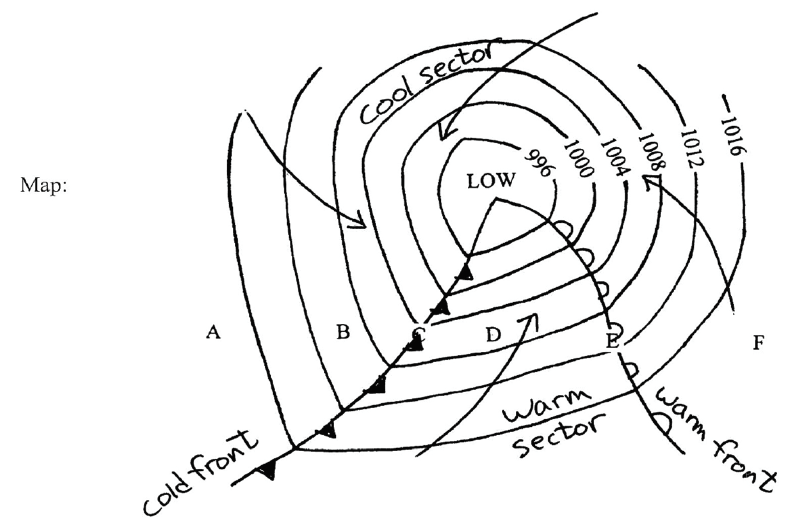At point B, is the pressure rising or falling? Why?
The question is based on this hypothetical weather map in the Northern Hemisphere showing isobars and the positions of a cold front and a warm front (top of map is north). Six locations are marked on the map (points A, B, C, D, E, and F). A cross-section diagram along points A, B, C, D, E, and F is shown below the map.


What will be an ideal response?
Rising (increasing). Trough along cold front is moving away.
You might also like to view...
How would you explain flattening strain in a shear zone with a clear strike-slip offset?
What will be an ideal response?
A 1-kg chunk of putty moving at 1 m/s collides with and sticks to a 5-kg bowling ball that is initially at rest. The bowling ball and putty are then set in motion with a speed of
A) 1/4 m/s. B) 1/5 m/s. C) 1/6 m/s. D) none of the above E) not enough information given
This model depicts the [INSERT FIGURE 8-4a. NO CAPTION]
A) Hadley cell B) two-cell model of the atmospheric general circulation C) three-cell model of the atmospheric general circulation D) Ferrel cell
In the U.S., the financial sector provides about ________ percent of all jobs
A) 6 B) 14 C) 23 D) 30 E) 42